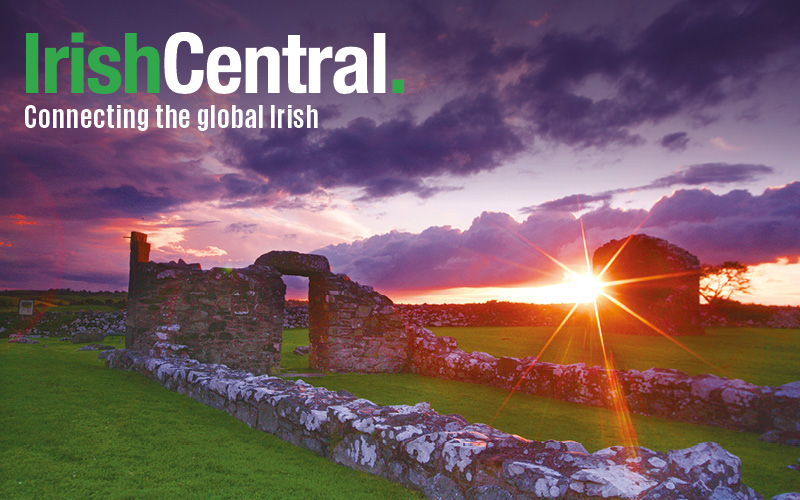Following a stint as a foreign policy advisor to Senator Edward Kennedy, Trina Vargo has emerged as a major player in the relationship between Ireland and the United States.
Her organisation, the US-Ireland Alliance, seeks to build a “new,” “modern” relationship between our two countries, hosts a glitzy Irish-themed event just prior to the Academy Awards each year and, most notably, sponsors the Mitchell Scholarship Programme. The programme is named for former Senator George Mitchell, who played a key role in helping to broker the Good Friday Agreement. The programme’s goal, as stated on the US-Ireland Alliance website, is “to provide tomorrow's leaders with an understanding about, an interest in, and an affinity with the island of Ireland.”
The Mitchell Scholars are the crème de la crème of American college and university graduates. The 12 scholars, selected on an annual basis, are awarded full scholarships, together with a bursary, to pursue postgraduate studies at universities across the island of Ireland, north and south. The programme is funded partly by private donations and partly by grants from the US, Irish and Northern Irish governments. Most recently, the Irish government has pledged €20 million in funding from the Department of Education for the programme, provided that the Alliance can raise the same amount.
This all sounds good on the surface, but let’s consider the positions taken by Ms. Vargo on issues important to Irish people and to many Irish-Americans.
First, when there was still promise of immigration reform so that the thousands of undocumented Irish in the US could have their status regularised, Ms. Vargo wrote an opinion piece in The Irish Times calling efforts to legalise Irish “wrong,” noting without discernment that Ireland is “not a place anyone has to leave” and terming shrewd legislative posturing on behalf of the undocumented Irish an attempt to “put lipstick on that pig.” Is Trina Vargo a friend of Ireland?
Now, the future of International Fund for Ireland (IFI), which stands as a marvellous symbol of the American contribution to the peace process in Northern Ireland and continues to enable excellent work in disadvantaged border communities, is imperilled by a Republican majority in Congress. The Irish Times reports that Ms. Vargo stands with Glen Beck and others on the far right and urges the Republicans to defund the IFI. What should receive funding instead? The Mitchell Scholarship programme should, says Ms. Vargo. Again, is Trina Vargo a friend of Ireland?
Less tangibly, but no less importantly, Ms. Vargo incessantly talks down the political influence of Irish America. In a recent online opinion piece (“It’s time to cut the blarney”) on The Detail, she claims that there is no “Irish Vote” and that Irish-Americans “do not vote on the basis of Irish issues – largely because there no longer are ‘Irish’ issues.” While statements like these are difficult to rebut definitively, two points (one reflecting personal experience) are worth noting that would suggest that Ms. Vargo is either overstating the case or is just plain wrong.
First, on St. Patrick’s Day this year, just like every year, much of the official business in Washington, DC ground to a halt so that President Barack Obama, Vice President Joe Biden, Speaker John Boehner, other congressional leaders and at least two governors could welcome Taoiseach Enda Kenny to America’s capitol. The Taoiseach had the ear of the world’s most powerful man and other political leaders for an entire day. And Tanaiste Eamon Gilmore had a private meeting with Secretary of State Hillary Clinton. Why do America’s highest office holders grant such access to representatives of a tiny island nation on Europe’s western fringe with no strategic importance whatsoever? These politicians’ reasons are not entirely altruistic.
And second, my uncle, former Congressman Brian Donnelly, was not entirely altruistic in deciding to fight to legalise the undocumented Irish by pushing Donnelly Visa legislation through the Congress in the late 1980s. His district, which included Boston neighbourhoods and smaller cities and towns south of the city, was heavily Irish American. He knew the Donnelly Visa was a political winner because of the “Irish Vote” in his district and his electoral record proves it.
All of this begs the question one more time: is Trina Vargo a friend of Ireland? Despite her public pronouncements on important issues and on the nature of the relationship between our two countries, she would doubtless answer the question affirmatively. But it would be interesting to hear Irish teachers, who labour away in overcrowded, prefabricated classrooms while already very accomplished Mitchell Scholars enjoy a year of study and travel with the support of Ireland’s Department of Education, answer the question.
Larry Donnelly is a Boston born attorney who has resided in Ireland since 2001.




Comments